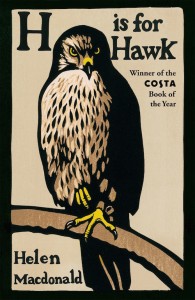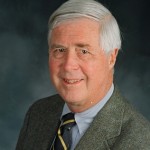 The New Yorker ads trumpet admiring words: “Riveting;” “Breathtaking;” Dazzling;” “Captivating.” May I offer a modest dissenting view?
The New Yorker ads trumpet admiring words: “Riveting;” “Breathtaking;” Dazzling;” “Captivating.” May I offer a modest dissenting view?
Helen Macdonald’s new novel about her response to the death of her father in England and her adoption of a goshawk to help her overcome her misery is, in fact, an orgy of compulsive introspection. She draws heavily on the earlier history of T. H. White, the author of the Arthurian novels, including The Once and Future King, and, more importantly, his own story of self-awareness, The Goshawk.
White also tried to tame a bird, much less successfully than Macdonald. This self-assessment actually becomes a triple biography: of Helen Macdonald, of T. H. White, and of Mabel, the hawk she trains.
Macdonald begins by arguing that “I was a different animal. . . . . Like White, I wanted to cut loose from the world.” She quotes Marianne Moore: “the cure for loneliness is solitude,” just Helen and Mabel. She sees England as “an imaginary place.”
The essence of this book is found is her words: “Sometimes when light dawns it simply illuminates how dismal circumstances have become.” But some 300 pages of gloom?
But Helen Macdonald does write lyrically. Her observant eye notes and her mind translates what she sees into phrases often reminiscent of James Joyce in Ulysses and Finnegan’s Wake (the more coherent ones!). The English countryside comes alive with her descriptions: clouds, flowers, grasses, and, above all, birds..
And so does Mabel, her adopted goshawk, come alive, so much so that at the end we are rooting for her future, not Helen’s. She is in fact the one intensely interested in her outside world. The goshawks, ospreys and eagles wheeling in the skies above Lyme make me think of Mabel.
Editor’s Note: ‘H is for Hawk’ is by Helen Macdonald and was published by Grove Press, New York in 2014
 About the author: Felix Kloman is a sailor, rower, husband, father, grandfather, retired management consultant and, above all, a curious reader and writer. He’s explored how we as human beings and organizations respond to ever-present uncertainty in two books, ‘Mumpsimus Revisited’ (2005) and ‘The Fantods of Risk’ (2008). A 20-year resident of Lyme, he now writes book reviews, mostly of non-fiction that explores our minds, our behavior, our politics and our history. But he does throw in a novel here and there. For more than 50 years, he’s put together the 17 syllables that comprise haiku, the traditional Japanese poetry, and now serves as the self-appointed “poet laureate” of Ashlawn Farms Coffee, where he may be seen on Friday mornings. His wife, Ann, is also a writer, but of mystery novels, all of which begin in a bubbling village in midcoast Maine, strangely reminiscent of the town she and her husband visit every summer.
About the author: Felix Kloman is a sailor, rower, husband, father, grandfather, retired management consultant and, above all, a curious reader and writer. He’s explored how we as human beings and organizations respond to ever-present uncertainty in two books, ‘Mumpsimus Revisited’ (2005) and ‘The Fantods of Risk’ (2008). A 20-year resident of Lyme, he now writes book reviews, mostly of non-fiction that explores our minds, our behavior, our politics and our history. But he does throw in a novel here and there. For more than 50 years, he’s put together the 17 syllables that comprise haiku, the traditional Japanese poetry, and now serves as the self-appointed “poet laureate” of Ashlawn Farms Coffee, where he may be seen on Friday mornings. His wife, Ann, is also a writer, but of mystery novels, all of which begin in a bubbling village in midcoast Maine, strangely reminiscent of the town she and her husband visit every summer.